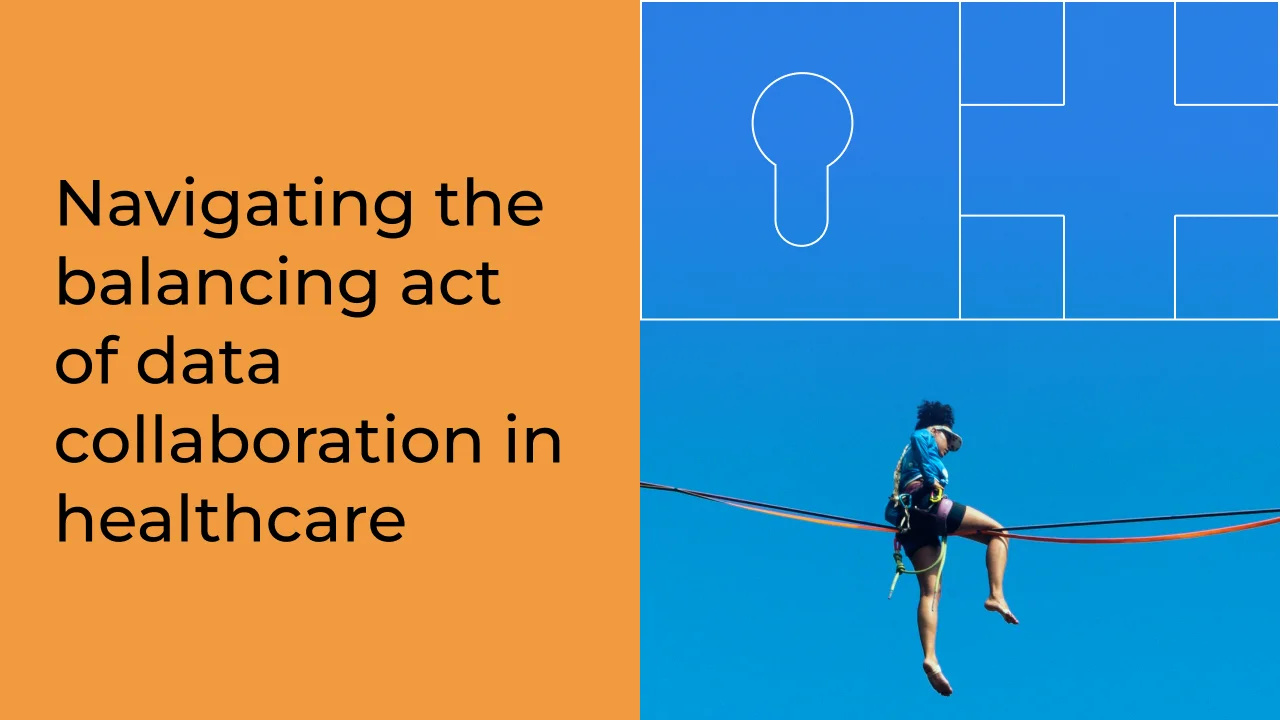
Data is invaluable in the healthcare landscape. So why does it often end up sitting idle in siloed digital archives?
Whitepaper: Unlock the value of real-world healthcare data with confidential data clean rooms
As the amount of healthcare data from real-world settings grows, how can care providers and life sciences companies use this data to advance research and treatment while protecting sensitive patient information?

Data is often hailed as the “new gold” in the rapidly evolving healthcare landscape. It holds immense potential for advancements in medical research, treatment methodologies, and public health strategies. In fact, the healthcare sector generates a tremendous quantity of data every year, amounting to over 30% of total generated data worldwide.
Despite this wealth of data, its utilization rate remains alarmingly low. The healthcare industry retains only 2% of its data year-over-year. When it comes to hospital data in particular, a staggering 97% remains untapped, sitting idle in siloed digital archives.

Embracing real-world evidence
Apart from current shortcomings in the use of real-world evidence (RWE) in the healthcare landscape, there is hope for change in the very near future. Recent years have witnessed a paradigm shift, with 90% of new FDA drug approval submissions incorporating real-world data (RWD). Moreover, the European Medicines Agency (EMA) has set the ambitious goal of expecting RWE in regulatory submissions and post-safety evaluations by 2025.
This shift towards RWE signifies a growing recognition of the importance of data collaboration in driving evidence-based decision-making. RWD provides a more comprehensive understanding of how treatments perform in actual clinical settings, offering insights that traditional clinical trials may overlook.
Patient willingness to contribute data
In the midst of discussions surrounding data use, the key stakeholders—the patients—are often overlooked. However, recent studies reveal a promising trend: patients are increasingly willing to share their anonymized health data to advance research. A survey indicates that 71% of the general population and a striking 81% of individuals with chronic diseases express a willingness to contribute their health data.
This willingness among patients is a testament to the shared understanding that collaboration on their data is essential for progress. Patients recognize that their data can be a catalyst for groundbreaking discoveries, leading to improved treatments and a better understanding of diseases.
Still, there need to be methods in place that allow this patient data to be worked on by multiple parties—such as hospitals, researchers, and biotech companies—while keeping it private and not allowing any of the raw data to be seen by the collaborators.

Balancing collaboration with security
While the desire to collaborate and use data for healthcare advancements is evident, the vast amount of sensitive information contained in health records demands a meticulous approach to ensure that data collaboration is conducted responsibly.
The right technology can play a pivotal role in addressing these challenges by providing safeguards and simplifying the data collaboration process. This not only ensures responsible conduct but also eases potential complexities, instilling confidence in the secure handling of sensitive health information.
In a world where data breaches and privacy violations are on the rise, it is imperative to establish robust frameworks and protocols for data collaboration in healthcare. Implementing cutting-edge encryption technologies, anonymization processes, and strict access controls are pivotal in safeguarding patient data.
Navigating the healthcare data collaboration landscape
Beyond the paramount concerns of security and privacy, collaborators also face additional hurdles such as the heterogeneity of data formats, diverse rules and regulations, and scalability.
Successfully navigating this intricate landscape necessitates a new approach. Software platforms that provide a strategic blend of advanced privacy technologies and data collaboration frameworks can ensure privacy and strict compliance with data protection regulations while also greatly simplifying the process of partnering securely for research and analysis.
Download our "Unlock the Value of Real-World Healthcare Data with Confidential Data Clean Rooms" whitepaper for an overview of the technologies and frameworks crucial for overcoming these challenges. It also features a selection of case studies spotlighting successful data collaboration through the use of data clean rooms.
References
Whitepaper: Unlock the value of real-world healthcare data with confidential data clean rooms
As the amount of healthcare data from real-world settings grows, how can care providers and life sciences companies use this data to advance research and treatment while protecting sensitive patient information?

Related content
Subscribe to Decentriq
Stay connected with Decentriq. Receive email notifications about industry news and product updates.




